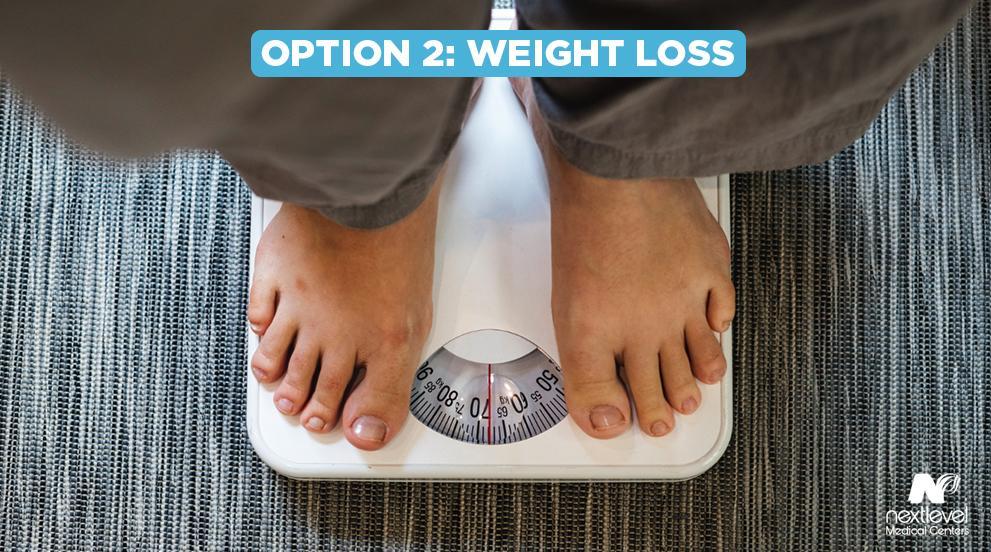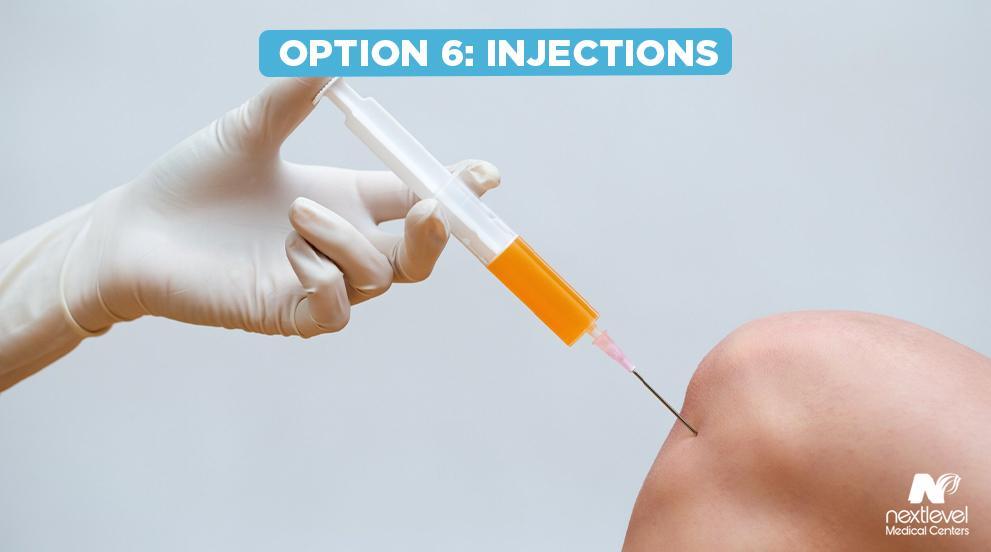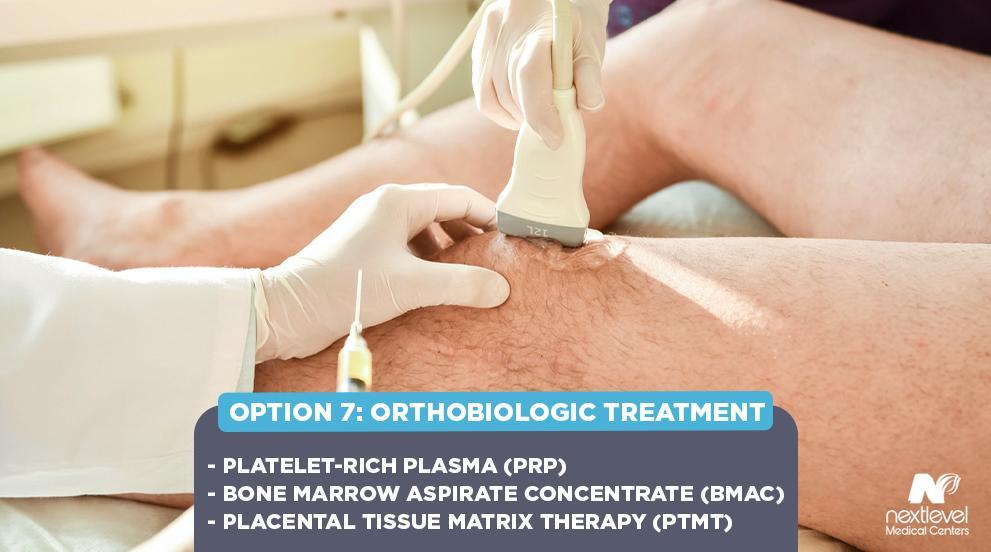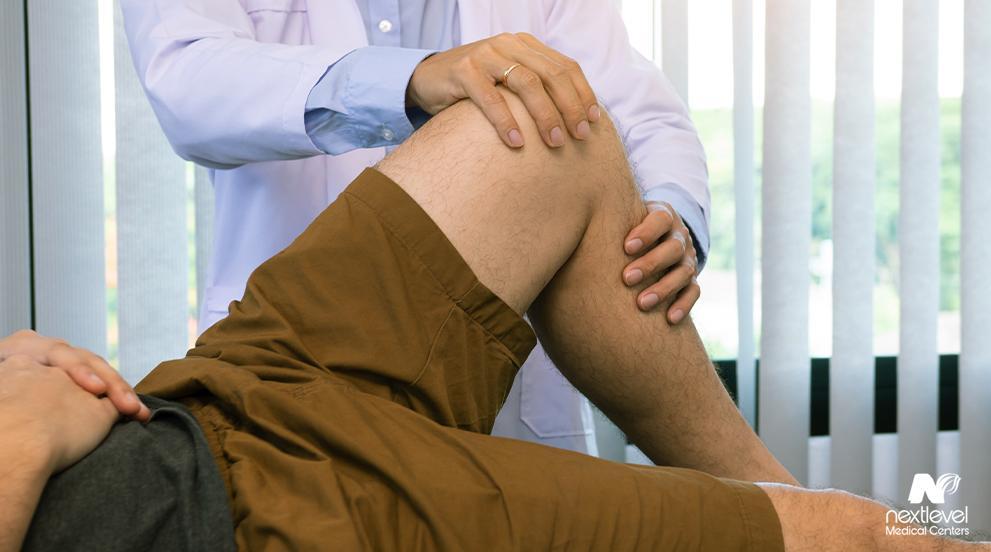Knee replacement surgery is a common yet intensive procedure to repair damaged knees enough to return mobility to those that suffer an impairment. However, such surgeries bring their own risks that can leave the patient worse off than they were before. The treatments are not the only option, however, as there are alternatives that might be able to alleviate pain and suffering in your knees without invasive surgeries.
There are several causes for knee injuries that cause chronic pain and issues. The alternatives below are not guaranteed to work but might save you some unnecessary pain and suffering. With this article, we hope to give you some insight into what alternatives to knee replacement surgery might be of benefit to you.
Option 1: Exercise
Generally, the first sign that you might be seeing knee replacement surgery in the future is stiffness and pain in the knee. However, surgery does not have to be your next step. General exercise provides your body with the resources to reinforce itself against the strains that would mandate surgery.
Exercising your knees builds up muscle that will support them, make them more flexible, and reduce the stiffness that impairs movement. It also helps to stimulate the flow of fluid around the knee and reduces buildup. Fluid buildup results in swelling that only exacerbates the stiffness and pain you might be suffering. Such buildups can occur for any number of reasons ranging from injuries to underlying conditions. However, exercise can be used to combat the issues.
The exercises ideal for strengthening the knees and combatting against knee replacement surgery are low-impact exercises. Low-impact exercise focuses on strengthening your legs, hips, and core. The best low-impact exercises include:
- Swimming
- Strength training
- Cycling
- Yoga
- Walking

These exercises will reinforce your body and minimize the risk of needing knee replacement surgery. That said, it is important to note that you will feel discomfort or even pain during the exercise, but the pain does not necessarily mean you are actively being harmed by it. If you start feeling intense pain during the exercise, stop immediately and rest. It can take several weeks for results to manifest, but you should not give up on attempting to heal your body.
Exercise, while a valuable tool for reinforcing your knees, is not the only recourse. There are other ways to improve the health of your knees to circumvent the need for surgery.
Option 2: Weight Loss
Many issues with the health of one’s knees stem from too much pressure being put on them at any given moment. Knees are a support for the rest of the body and are responsible for keeping us upright. They go through a great deal of strain and trauma throughout our daily lives. For overweight people, more strain is placed on the knees, and they weaken even further than they otherwise might.
In this instance, losing weight is a remarkable tool for preventing any need for reconstructive surgery. You only need to lose 10% of your excess weight to alleviate the pain and pressure on your knees, as every pound lost equals 4 pounds of pressure taken off your knees. Additionally, excess weight inflames the body, compounding existing inflammation on the knees and worsening the issues.

Weight loss is not an easy journey, and there is no right way to do it. You can consult with dietitians, nutritionists, or even simple dietary counselors to learn steps you can take to reduce your overall body weight. It can range from simply needing to be more attentive to what and how much you eat, or it could require exercise to burn the calories you have accumulated and reduce weight. The method depends on the person.
Weight is not the only factor that induces knee pain, but it can be a major one depending on your lifestyle. There remain additional options you can employ to reduce the need for surgery.
Option 3: Physical Therapy
Knee pain is common among the human race. Unfortunately, it affects us all eventually as we subject ourselves to consistent physical stress. The field of physical therapy is designed to help us repair damage and bring us back to the physical capacity to return to the quality of life we originally knew.
Physical therapy combines exercise and professional care to help build up strength in damaged or afflicted limbs. The course of your treatment is dictated by the physical therapist you have hired, who will draw up the best treatment plan for your particular injury. For knee issues, the exercises will be oriented toward improving balance and mobility and reducing inflammation. In so doing, your knee becomes more resilient, and its use becomes easier and induces less pain.

An additional benefit of physical therapy is that the therapist will educate you on the exact nature of your injuries. By giving you the information you need to understand the injury, you can avoid exacerbating or replicating it.
Physical therapy is not a perfect science, as the human body is delicate, and some wounds cannot fully recover. However, physical therapy can help avert the need for replacement or reconstructive surgery by giving your knee a chance to heal and reduce existing damage.
Countless facilities offer physical therapy services, and such facilities can prove to be a huge help in maintaining your knee’s health.
Option 4: Pain Medication
Perhaps the bread and butter of the medical field, the use of pain medication to treat knee pain, is not considered ideal by the American Association of Hip and Knee Surgeons if they are opioid-based. This is because opiate pain relievers are highly addictive and are not considered as effective as nonsteroidal anti-inflammatory drugs (NSAIDs).
NSAIDs such as ibuprofen and naproxen are among the most commonly prescribed drugs for knee and joint pain. They require a physician’s approval for high doses, unlike over-the-counter medication. NSAIDs can reduce the inflammation responsible for pain and help make your knees manageable again. They do this by preventing the cyclooxygenase (COX) enzyme from producing prostaglandins, a hormone-like chemical that contributes heavily to the body’s inflammation. By preventing this production, the inflammation in your body naturally begins to reduce back down to acceptable levels.

With this in mind, NSAIDs are not perfect and come with their issues for those considering them to treat their knee injuries. NSAIDs can induce side effects, including gastrointestinal problems, heart attack, stroke, allergic reactions, kidney issues, fluid retention, bruising, or even negative interactions with other medications you are taking. This is why NSAIDs should be taken with caution to avoid compromising your health further.
If prescription medication is an option you would rather avoid, you can pursue one of many alternatives available to help cope with the inflammation and reduce knee pain to more manageable levels.
Option 5: Supplements
The knee relies on cartilage to remain stable and functional; inflammation or damage compromises the cartilage and weakens the knee. Cartilage itself is composed of several substances that build up the whole. So when it starts to deteriorate, it can be something of a challenge to repair and maintain.
Two of the main substances responsible for our cartilage are glucosamine and chondroitin, which specifically maintain the structure of the cartilage and slow its deterioration. Nowadays, there are supplements available to increase the level of these substances in the human body to help restore cartilage and mitigate the pain from the deterioration. They have been shown to reduce knee pain for 60% of those who take them. However, the results can take up to six weeks to manifest, and the results will vary from person to person.

While supplements can help alleviate the pain of knee injuries, they are not a reliable alternative to surgery. However, it can prove to be a useful supplementary option.
Option 6: Injections
A common yet invasive alternative to surgery is injections into the knee to mitigate the pain that comes from the injury. There are two major injection types available for knee pain.
Steroid injections use corticosteroids that employ cortisone to be administered to the afflicted area. Cortisone emulates the effects of cortisol, a naturally produced substance in our adrenal glands that reduces inflammation and relieves pain. However, steroid injections only have a temporary effect, and you will have to return for additional injections in the future. Typically, you start to feel relief within 24 hours of the injection and enjoy that relief for up to six months before it wears off. Unfortunately, injections also come with many possible side effects, including pain and swelling after the shot.

Hyaluronic acid injections are the second option for knee treatment. Our bodies already produce hyaluronic acid that lubricates the joints in our body to minimize the damage they accumulate over time. The acid injections can be used to bolster the concentration of the acid in your body’s natural supply to enhance your knee’s protection against external trauma. Like steroid injections, it is not a one-and-done treatment and requires constant injections after the fact.
Injections are a costly and risky alternative to surgery and should only be employed when no other options are available or effective. Fortunately, it remains one of many options available to you.
Option 7: Orthobiologic Treatment
Commonly cited as “regenerative medicine,” orthobiologic treatment is a newly emerging field that is still making a name for itself. While minimally invasive, orthobiologic treatments are still a relatively unproven option for treating knee injuries and pain.
Orthobiologics use natural products taken from the body’s tissue to attempt to restore functionality naturally. Orthobiologics are not meant to be used independently and generally accompany physical therapy treatments to maximize their effects. Depending on the nature of your injury, your doctor will recommend the best orthobiologic treatment for your needs. Options include:
- Platelet-rich plasma (PRP)
- Bone marrow aspirate concentrate (BMAC)
- Placental tissue matrix therapy (PTMT)

Orthobiologic treatments are a form of stem-cell treatments that are still being developed and refined due to the uncertain nature of the programs. They may or may not be available where you live, so you may need to travel to find them.
The Risks of Surgery

Now, you might be wondering why avoiding replacement surgery is in your best interest. Aside from the sheer cost, the main reason is that knee replacement surgery is rife with side effects and risks that might leave you worse off than you started.
The general anesthesia used in the surgery can result in:
- Headaches
- Nausea
- Drowsiness
- Sore throat
- Heart attack
- Stroke
Regional anesthesia can lead to:
- Headaches
- Urinary blockage
- Allergic reactions
- Nerve injury

On top of these effects from the anesthesia, the surgery itself leaves you open to infection as the opening in the skin leaves you vulnerable to invading bacteria. In other cases, you can develop blood clots, suffer increased pain and swelling, and even damage your arteries during the procedure.
The main concern with replacement surgery is that there is always the chance that your implant will fail and wear out. If the replacement wears out, it will need to be replaced, necessitating another surgery. Obviously, surgery should be considered if you have no other recourse, but if your original knee is salvageable, dedicate your time to it first.
Wrapping Up
Knee replacement surgery is a highly invasive and expensive ordeal that leaves you with some issues even upon replacing the damaged and compromised knee. However, there are plenty of alternatives available that might help minimize the need for such procedures. The fact is, keeping your knee healthy and well-maintained means it will not need replacement.
The reasons for needing replacement can range from external trauma to an underlying condition such as arthritis. Regardless of the source of the pain, simply engaging in a healthy lifestyle and maintaining your knee will help you increase its strength and let you hold on to your original knee longer.

As always, consult your primary care physician before seeking out any form of treatment.
Additionally, if you ever have any further questions or concerns regarding knee replacement surgery or the alternatives, feel to reach out at any time for assistance.


